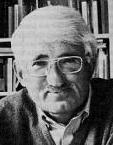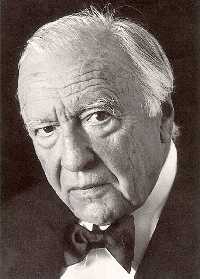







PHIL
419.500: Current Continental Philosophy
Spring 2005, Dr. Stephen H. Daniel
Monday-Wednesday-Friday 1:50-2:40
Bolton Hall 003








Current Continental Philosophy examines the ideas of influential European philosophers in the second half of the 20th Century. Movements studied include Neo-Marxist critical theory, philosophical hermeneutics, psychoanalytic structuralism, French feminism, deconstruction, poststructuralism, postcolonialism, and postmodernism.
Prerequisites: At least junior classification or approval of instructor.
Text: Contemporary Continental Philosophy, Stephen H. Daniel (Prentice
Hall, 2005)
|
Class date |
Topic |
Reading Assignment (page #s) |
|
Jan. 19 |
Introduction |
vii-ix, 1-10 |
|
Jan. 21 |
Marx, Freud, Nietzsche |
11-21 |
|
Jan. 24 |
Frankfurt School & Lukács |
25-44 |
|
Jan. 26 |
Horkheimer |
45-60 |
|
Jan. 28 |
Benjamin |
61-71 |
|
Jan. 31 |
Adorno |
72-79 |
|
Feb. 2 |
Adorno |
80-86 |
|
Feb. 4 |
Gadamer |
87-108 |
|
Feb. 7 |
Habermas |
109-22 |
|
Feb. 9 |
Habermas |
123-30 |
|
Feb. 11 |
Test 1 |
|
|
Feb. 14 |
Althusser: "Marxism and Humanism" |
131-43 |
|
Feb. 16 |
Althusser: Capital |
143-58 |
|
Feb. 18 |
Structuralism & Saussure |
161-76 |
|
Feb. 21 |
Lacan |
177-86 |
|
Feb. 23 |
Lacan |
187-95 |
|
Feb. 25 |
Psychoanalytic Feminism & Irigaray |
196-221 |
|
Feb. 28 |
Kristeva |
222-35 |
|
Mar. 2 |
Kristeva |
235-44 |
|
Mar. 4 |
Test 2 |
|
|
Mar. 7 |
Deconstruction & Levinas |
245-53 |
|
Mar. 9 |
Levinas |
253-63 |
|
Mar. 11 |
Derrida: "End of the Book" |
264-80 |
|
Mar. 21 |
Derrida: "Structure, Sign, & Play" |
280-96 |
|
Mar. 23 |
Derrida: Afterword |
296-305 |
|
(Mar. 25) |
(No class: Good Friday) |
|
|
Mar. 28 |
Cixous |
306-16 |
|
Mar. 30 |
Cixous & Poststructuralism |
316-28 |
|
Apr. 1 |
Deleuze: Difference & Repetition |
329-38 |
|
Apr. 4 |
Deleuze: Anti-Oedipus |
339-49 |
|
Apr. 6 |
Deleuze: Anti-Oedipus |
349-57 |
|
Apr. 8 |
Test 3 |
|
|
Apr. 11 |
Foucault: "Discourse on Language" |
358-82 |
|
Apr. 13 |
Foucault: History of Sexuality, vol. 1 |
382-92 |
|
(Apr. 15) |
(Class cancelled: instructor out of town) |
|
|
Apr. 18 |
Foucault: History of Sexuality, vol. 2 |
392-99 |
|
Apr. 20 |
Postcolonialism |
400-404 |
|
Apr. 22 |
Spivak |
405-418 |
|
Apr. 25 |
Bhabha |
419-35 |
|
Apr. 27 |
Postmodernism & Lyotard |
436-53 |
|
Apr. 29 |
Lyotard |
454-58 |
|
May 2 |
Baudrillard |
459-78 |
|
May 3 (redefined Friday) |
Baudrillard |
469-78 |
|
May 10 (Tuesday) |
Final exam, |
|
Grades/Tests
The semester grade is based equally on four in-class essay-format tests (including the final exam). Questions for the tests will be distributed two classes before the test, but no notes can be used during the test. Four times during the semester (at least twice before mid-semester) you have to write a two-page summary of the daily reading. Anyone who misses a Friday class has to write a summary on the material covered in that class. These summaries add extra points to a test score: A=2 pts, B=1 pt, C=1/2 pt. Summaries (other than those for missed Friday classes) must be turned in at the beginning of the class in which the readings are discussed; missed Friday summaries should be turned in no later than the following Monday. Failure to submit summaries will result in -4 pts each. (For more on how to write the summaries, see below.) In addition to the four required summaries, you can write as many other summaries as you want for extra points. There are 37 reading days when we have readings, so you have a chance to add up to 74 points to your test scores. There is no grade for attendance, but if you miss a class it usually affects how I grade your answers on tests. If you miss a test, you should call me IMMEDIATELY to arrange to take it within the next two days (before our next class).
Students with disabilities are guaranteed a learning environment that provides for reasonable accommodation of their disabilities. If you believe you have a disability requiring accommodation, please contact the Department of Student Life, Disability Services, Cain Hall B118, or call 845-1637.
Information on cheating and plagiarism can be found at http://www.tamu.edu/aggiehonor/acadmisconduct.htm.
Guidelines for the Summaries
Summaries should address the question: What are the main points discussed in the assigned readings? Do not bother with biographical or historical remarks about the philosopher: focus on the arguments he or she presents. To understand the readings better, consult secondary sources such as the following:
- The Routledge Encyclopedia of Philosophy (Routledge, 1998)
- Richard Kearney, Twentieth Century Continental Philosophy (Routledge, 1994)
- David West, Introduction to Continental Philosophy (Polity, 1996)
- John Lechte, Fifty Key Contemporary Thinkers (Routledge, 1994)
- Simon Critchley & William Schroeder, eds., A Companion to Continental Philosophy (Blackwell, 1998)
- John Sturrock, ed., Structuralism and Since (Oxford University Press, 1979)
For more information you can also consult websites such as:
- pegasus.cc.ucf.edu/~janzb/continental/
- www.baylor.edu/~Scott_Moore/Continental.html
- www.cudenver.edu/~mryder/itc_data/postmodern.html
Collections of an author's writings (e.g., A Kristeva Reader) provide introductions to selected works, and books devoted entirely to a thinker often describe in detail points in the essays we study. In your summaries make sure to indicate exactly where your secondary sources address those issues. Do this by parenthetically citing your source and then give full bibliographic data at the end of your summary. For example, if you are summarizing Derrida's "Afterword" and you want to clarify the meaning of differance by referring to David West's discussion of Derrida in the book mentioned above, you could simply write: "Differance is the act of alluding to something while at the same time attempting to erase the very gesture by which the allusion is made (West, 136)" and then give the full citation at the end of your summary. You thus make use of West without having to say "as David West says..." You only have two pages to summarize the points of the essay(s) we are studying that day, so use your words economically. Likewise, use paper wisely: don't turn in a page with one or two lines at the top; squeeze them in on the previous pages by changing the margins to accommodate them.
Remember: summaries should be limited solely to the points raised in the readings. They are not intended as opportunities for you to say how you agree or disagree with the author. Avoid statements like "For centuries philosophers ..." Finally, make sure you cover all assigned pages, especially if the assignment covers more than one reading or more than one philosopher.
![]()
![]() Send
Dr. Daniel a message: sdaniel@people.tamu.edu
Send
Dr. Daniel a message: sdaniel@people.tamu.edu
Office: Bolton 302 B
Office hours: Monday & Wednesday 3:00-5:30
Phone: 845-5619 (office), 846-4649 (home)
Email: sdaniel@people.tamu.edu
Course Website: http://people.tamu.edu/~sdaniel/419sy05a.html